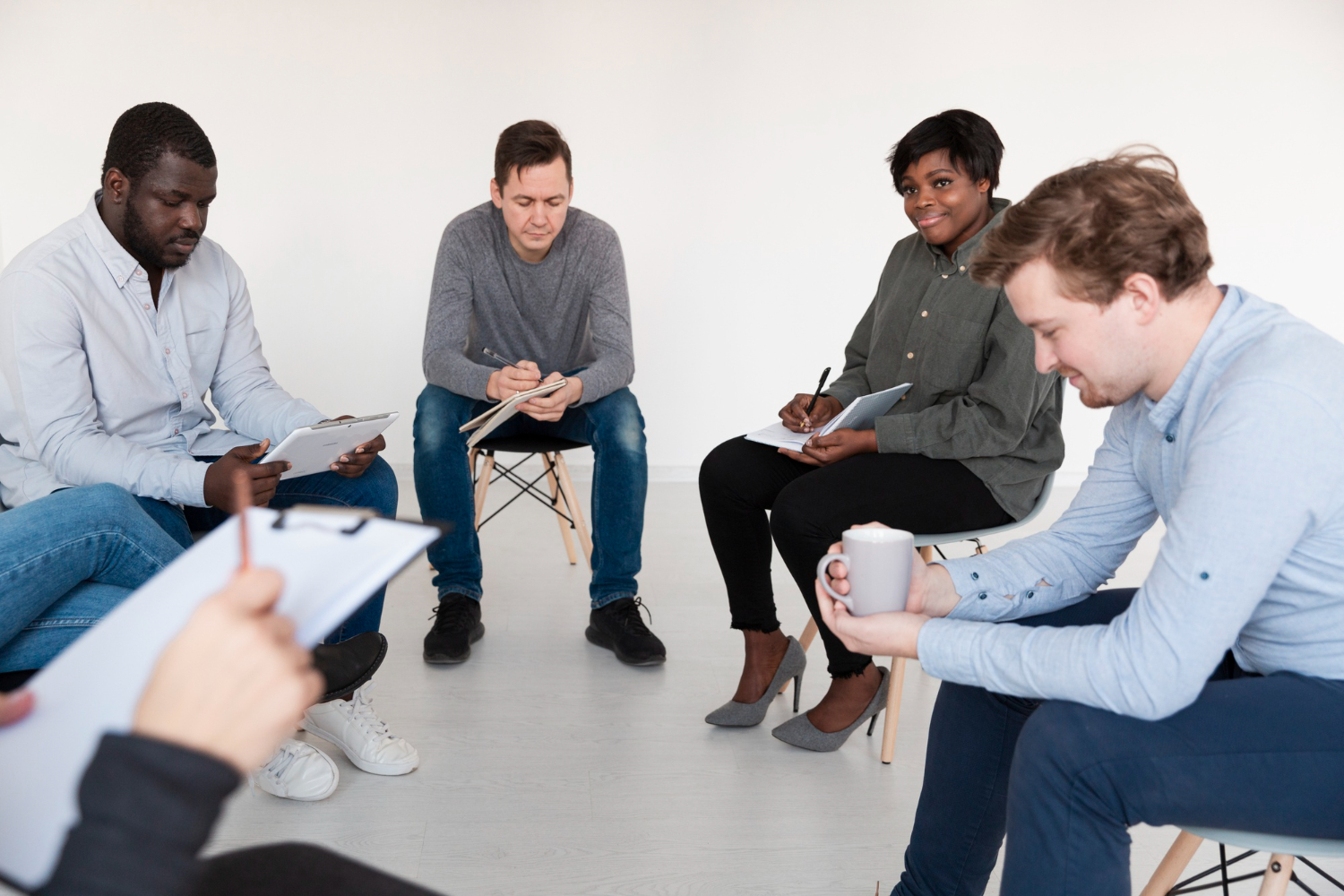
Outpatient drug rehab offers flexible treatment for people who need help with addiction while maintaining their daily responsibilities. This treatment approach allows patients to live at home and attend scheduled therapy sessions throughout the week. Each substance abuse treatment center creates personalized plans that address individual needs, including drug use, mental health, and social support. The process involves several key steps that work together to help people recover. This guide breaks down each step so you can understand what to expect from outpatient treatment.
Initial Assessment
The first step involves meeting with treatment professionals to discuss your situation and needs. Staff members ask about your drug use history, mental health, medical background, and family support. They also want to know about your work, living situation, and personal goals. This meeting helps them understand what type of help you need most. The information gathered creates the foundation for your treatment plan and helps staff decide which services will work best for you.
Treatment Planning
After the assessment, your treatment team creates a plan tailored to your needs. This plan sets clear goals and explains how to reach them through different activities and therapies. Your input matters during this process - staff want to know what you think will help and what concerns you have. The plan includes specific steps you'll take and shows how progress will be measured. This roadmap guides your recovery journey and can be changed as you grow and improve.
Individual Counseling
One-on-one counseling gives you private time to talk with a trained therapist about your thoughts and feelings. These sessions help you understand why you use drugs and what triggers your cravings. Your counselor teaches you new ways to handle stress, deal with problems, and make better choices. You'll learn skills to manage difficult emotions without turning to drugs. These personal meetings build trust and give you a safe place to work through challenges at your own pace.
Group Therapy Sessions
Group therapy brings together people who face similar struggles with addiction. These meetings create a supportive space where you can share experiences and learn from others. Listening to different stories helps you feel less alone and gives you new ideas for handling problems. Group members encourage each other and celebrate progress together. The connections made in group therapy often become important friendships that support your recovery long after treatment ends.
Skill Building Workshops
These workshops teach practical skills you need for daily life without drugs. You might learn how to:
- Manage stress in healthy ways
- Communicate better with family and friends
- Handle work pressure and responsibilities
- Build healthy routines and habits
- Deal with peer pressure and social situations
The skills practiced in these workshops prepare you for real-world situations you'll face after treatment. Interactive activities make learning engaging and help you remember what you've learned.
Aftercare Support
Treatment doesn't end when you finish the main program. Aftercare provides ongoing help as you continue your recovery journey. This might include regular check-ins with counselors, support group meetings, or access to community resources. Aftercare helps prevent relapse by giving you continued support when challenges arise. Many people find this ongoing connection helpful for staying motivated and maintaining the progress they've made during treatment.
Other Articles:



